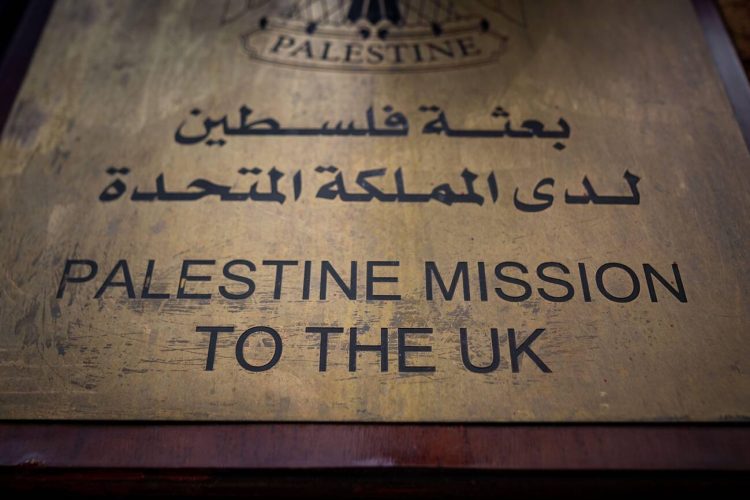The UK’s recognition of Palestine was officially announced by the British government. The move has altered the dynamics of Middle Eastern and international diplomatic relations. Donald Trump denounced it, and Israel reacted furiously, calling it a gaffe. Setting aside the denunciations, the move shows that Britain is ready to make courageous foreign policy decisions. This article examines the logic of recognition, its political subtext, and the potential impact on future peace initiatives.
From Verbal Support to Formal Recognition
The UK supported the two-state solution for years. British leaders wrote about peace without taking actions that would enrage Israel. State recognition of the Palestinians was discussed but kept at arm’s length. The UK took the step into formal recognition today. That is action, not rhetoric; a categorical move in the conflict. Palestinians see it as conferring legitimacy. Israelis see it as unfair pressure. The action shows how Britain will challenge the existing status quo.
Political Significance of the Decision
The political significance of the decision cannot be overstated. Israel has relied on Western allies to block or delay international Palestine recognition. Without Britain in the ranks, the scales tip. The UK’s Recognition of Palestine signals that the willingness to wait is over. Some commentators argue this will lend more weight to Palestinian assertions at the United Nations and other global platforms. It also puts new strains on previously strong British-Israeli relations.
Trump’s Opponents and US Reaction
Donald Trump has vehemently opposed Britain’s move. When in office, he relocated the US embassy to Jerusalem and unequivocally defended Israel. In his view, Palestine’s recognition is treason against that heritage. Although the current US administration does not necessarily share Trump’s views, his sentiments still influence American politics. Britain’s move to disregard his advice shows a strong commitment to shaping its own destiny. It also tells the world that London can act independently of Washington.
Britain’s Quest for Post-Brexit Identity
In the post-Brexit era, the UK struggled to establish its new role on the world stage. Trade issues and diplomatic isolation led it to question its influence. Recognition of Palestine is one of London’s efforts to regain its standing. By standing up for its political and moral position, Britain aims to demonstrate that it can still set the global agenda. Some dismiss it as symbolic, but to others, it represents the rediscovery of Britain’s lost prestige. The action also suggests London is eager to pursue leadership for more than economic motives. in line with Europe.
Deeper Integration with Europe
Recognition also deepens Britain’s engagement with Europe. Several European countries have debated granting recognition, while others already have. By recognizing Palestine, Britain aligns with European voices rather than Washington. This is a strategic choice. It shows London’s intent to increase foreign policy cooperation with Europe after Brexit’s isolating effects. The move could foster coordination with EU states that once questioned Britain’s commitment to shared values.
Consequences on Israel and Middle Eastern Politics
Israel reacted angrily, terming the action rewarding extremism. Its politicians fear other nations will follow Britain’s action. This could isolate Israel further from the rest of the world. Israeli politicians are rallying nationalist votes at home using recognition. Throughout the wider region, Arab nations welcomed Britain’s action as being long overdue. The symbolic worth of recognition could also increase Palestinian confidence in the negotiating process. There is still a danger of escalation, though, since Israel can harden.
Palestinian Gains and Limitations
Recognition is a laborious victory for Palestinians. It strengthens their legitimacy in international law and advances their demand for sovereignty. Recognition increases the Palestinian Authority’s negotiating leverage. But it doesn’t change anything on the ground. Israel retains control over borders, settlements continue to expand, and Gaza remains under siege. Recognition is important, but Palestinians also know that it will not be enough to bring them freedom or peace. They need material changes, not symbolic gains.
Effect on Peace Talks
The majority of individuals believe Britain’s move will speed peace talks. It raises the diplomatic cost of Palestinian rights being disregarded. It forces Israel to consider negotiations seriously rather than procrastination. Others believe that peace will come earlier if Palestinians are treated equally at the negotiating table. Others caution that recognition will render Israeli resistance more uncompromising. The UK’s recognition of Palestine can therefore hasten talks or reaffirm war. The outcome will depend on the reaction of the other powers, notably the US and EU.
Risks of Diplomatic Revenge
Optimism aside, danger is there. Israel will delay cooperation with Britain on security and trade. American Trump-backing politicians would also be among those called out for condemnation by London. Anti-negotiation circles in the Middle East may seize on recognition as proof that the war is going their way. Britain will have to balance the moral value of recognition against the threat of new instability. As a result, supporters are firm that refusal to grant Palestinian rights is riskier in the long term. The future is still unclear, however.
International Reactions and Future Movements
Internationally, Britain’s action received mixed reactions. It was received warmly by European statesmen but responded hesitantly in the US. Arab states received the recognition but called for greater pressure on Israel. Some African and Asian countries signaled that they would emulate the British example. When more countries recognize Palestine, world public opinion will change even more. The UK’s recognition of Palestine can initiate another recognition wave and altering the political paradigm to force Israel to change direction.
A New Independent Voice for London
The display of independence is the initial effect of recognition. London used to be perceived as taking the Washington line for decades. In becoming the first British government to endorse Palestine, Britain is showing that it is willing to go it alone. It is a broader post-Brexit policy of going independent internationally. It allows Britain to show that it can make difficult decisions, unpopular with allies or not. Whether independence succeeds or fails or not depends on how much Britain remains committed in practice.
Final Reflections on the UK’s Recognition of Palestine
The UK’s recognition of Palestine marks a shift in its diplomatic role. Once a hesitant backer of a two-state solution, Britain now openly supports Palestinian statehood, distancing itself from Trump’s policy, aligning more with Europe, and prompting Israel to reassess its approach. The recognition could hasten peace negotiations or heighten conflict; however, the decision carries significant diplomatic and symbolic weight, redefining Britain’s influence in the Middle East and beyond.





























